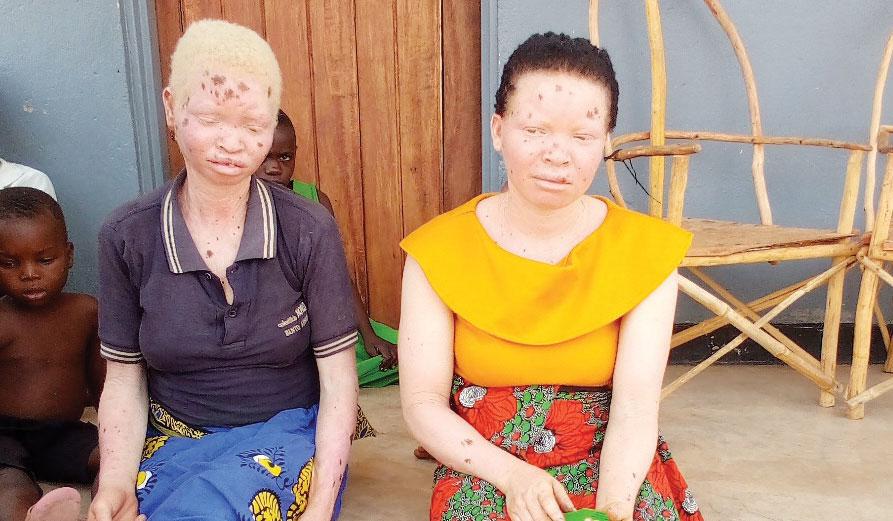Africa-Press – Malawi. At the heart of Sustainable Development Goal 10 is the empowerment and promotion of social, economic and political inclusion of all, irrespective of age, sex, disability, race, ethnicity, origin, religion or economic status.
But Awese Maguba, a woman with albinism and a single mother from Traditional Authority (TA) Chowe in Mangochi, doubts if Malawi will even get closer to the United Nations goal by 2030.
“We have the potential to lift up our families and communities out of poverty if we are economically empowered and given the right opportunities to be financially independent.
“Unfortunately, in our scenario in Malawi, our government and its development partners are not investing much in us to reduce poverty and inequality,” Maguba says.
The World Health Organisation (WHO) estimates that more than 15 percent of the world’s population have a disability, with 80 percent of them living in developing countries such as Malawi.
They face the reality of living in abject poverty, lack of access to education and job opportunities, informality, lack of recognition of legal capacity and discrimination that limit their participation in daily life activities.
“Women and girls with disabilities often face double discrimination for being both female and a person with a disability. They are more likely to be unemployed and less likely to receive an education compared to their non-disabled peers,” a recent WHO report reads.
Lekeleni Evans, another woman with albinism from TA Chimwala in the same lakeshore district, argues that girls and young women with the skin condition face barriers to participating in social life and development.
Evans adds that women and girls with disabilities have challenges to access health services as a result of gender discrimination, violence, poverty and other forms of social deprivation.
“We are also vulnerable to sexual violence because of the belief that sleeping with a person with albinism can cure any type of a disease. This puts women and girls with disabilities at a higher rate of contracting sexually transmitted infections such as HIV and Aids,” she says.
Both Maguba and Evans have called for enhanced economic security of persons with albinism by equipping them with vocational and entrepreneurial skills and providing start-up loans and accessible workplace.
They plead with the government and its development partners to consider providing them with skills training, materials, equipment and business start-up loans to enable them venture into small and medium enterprises.
“Currently, we survive on washing clothes of people within our locality; and, this has been a very big burden on me ever since I started raising my children as a single mother.
“But if the government can provide me with business capital, I will be able to survive on profits from my business,” Evans says.
On the other hand, Charles Chidambukira Ndau, of TA Chakhumbira in Ntcheu, sees improvement in the enjoyment of rights of persons with albinism following relevant awareness campaigns.
Ndau says a number of persons with albinism have now been incorporated in local governance structures such as village development committees, area development committees and full council meetings.
“But our major challenge now is on economic empowerment. Most of us are economically disempowered, a situation that forces us into picking menial piecework that exposes us to life-threatening conditions such as working under direct sunlight,” he says.
The issues came up during a tour the Malawi Human Rights Resources Centre (MHRRC) organised to allow journalists appreciate the impact of an initiative the organisation is implementing on protection and promotion of rights of persons with albinism in Malawi.
The European Union is financing the project through the Christian Blind Mission with the aim of strengthening the capacity of persons with albinism with skills to understand their rights and hold duty-bearers accountable.
MHRRC Programme Officer Enock Chinkhuntha says it is time government started designing policies and programmes that provide access to people with disabilities, make a meaningful impact on their futures, and transform society.
“MHRRC strongly believes that providing them with skills training and start-up capital would enable persons with albinism to start their own sustainable businesses to support their families.
“This appeal for skills training and start-up capital will form part of our recommendations to the government and its development partners for consideration in their future programmes,” he Chinkhuntha says.
MHRRC is working with the Ministry of Gender, Community Development and Social Welfare, district councils and other human rights organisations to achieve the goal.
For More News And Analysis About Malawi Follow Africa-Press






